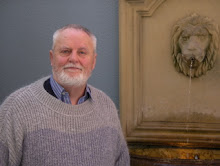William Clifford (The Ethics of Belief) and William James (The Will to Believe)
what you get when you google james + "will to believe"
William James = The Varieties of Religious Experience: A Study of Human Nature
Lectures IV and V = reflections on the extent to which the conversion of people like augustine, luther and wesley suggest that they belong to a type (the twice-born) who are (genetically?) different from people like erasmus and wordworth (the once-born)
William Wordsworth = The Prelude - click on NEXT to work through the 14 books of the poem
the first three books (about his childhood and youth) have a very different feel to augustine's account of his childhood and youth - i haven't got to the two books on the imagination - 12 and 13 - but they could give me some insight into my feeling (belief?) that sin originates in the imagination - that, whatever else it includes, being made in the image of god, includes being made with the ability to imagine
Adam Smith = The Theory of Moral Sentiments
an overview of Smith's Theory = morality is rooted in custom = in conditioning = in socialisation = in wanting to be praiseworthy = compare augustine's need to be accepted and acceptable to other people and to god - see McClelland's affiliation needs
what you get when you google smith + "theory of moral sentiments"
David Hume = A Treatise of Human Nature
BOOK II = OF THE PASSIONS
OF PRIDE AND HUMILITY
OF LOVE AND HATRED
OF THE WILL AND DIRECT PASSIONS
(see section 3.3) = "Reason is, and ought only to be the slave of the passions, and can never pretend to any other office than to serve and obey them. As this opinion may appear somewhat extraordinary, it may not be improper to confirm it by some other considerations."
BOOK III = OF MORALS
OF VIRTUE AND VICE IN GENERAL
OF JUSTICE AND INJUSTICE (see section two = scarcity, including our limited affections)
OF THE OTHER VIRTUES AND VICES
Journal of John Wesley @ Christian Classics Ethereal Library
chapters 1 and 2 = mainly for me, because his Aldersgate experience seems to me to be similar to Augustine's garden experience
